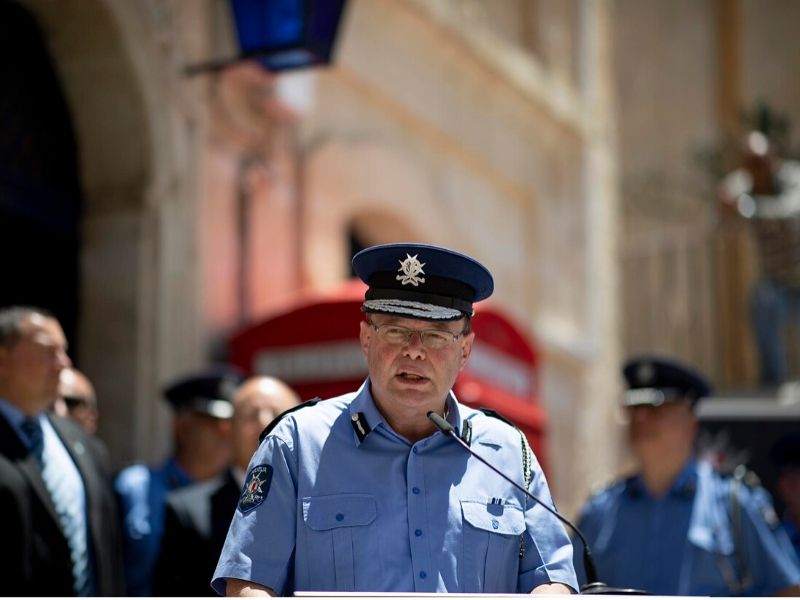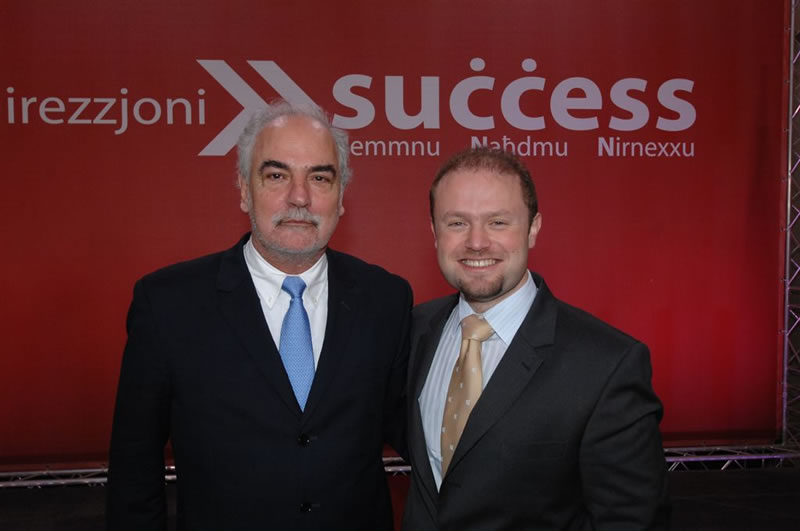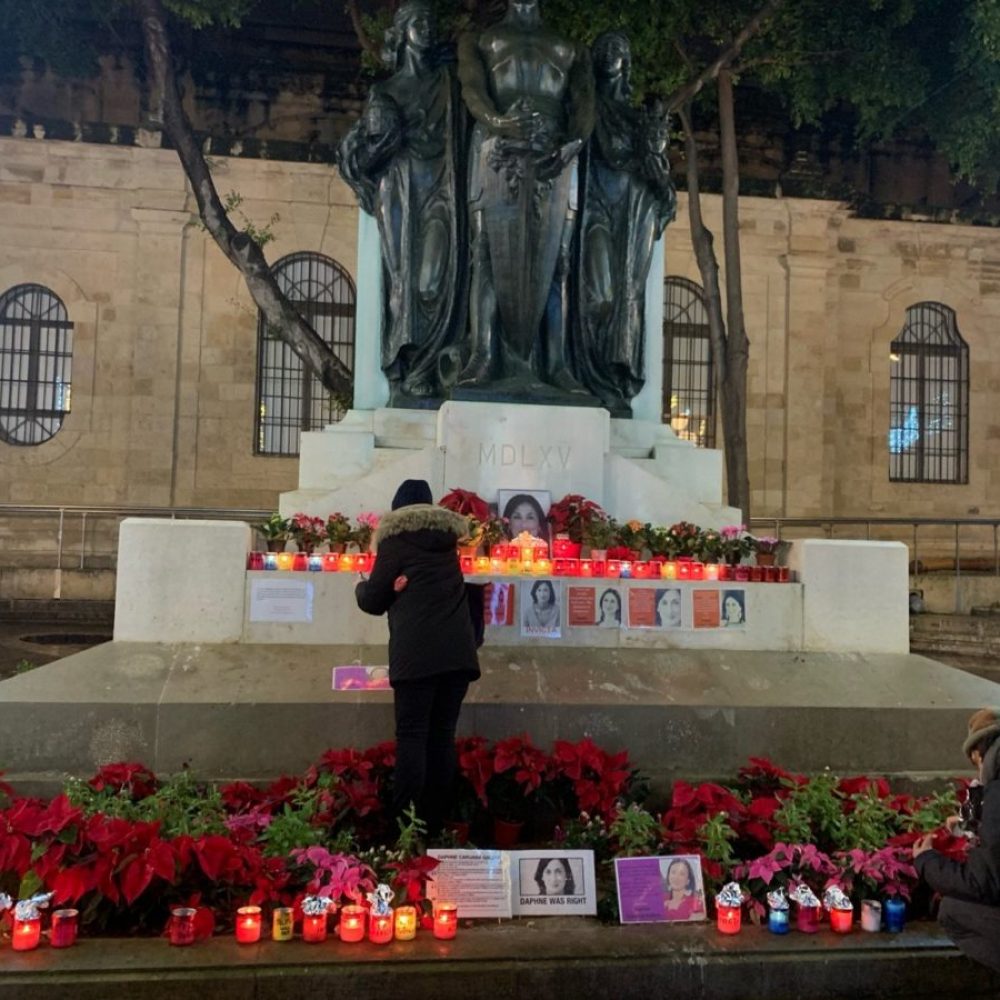Law enforcement in Malta is unable to prosecute corruption involving high level government officials.
At least, that’s the impression they give to anyone following the public inquiry into the assassination of Daphne Caruana Galizia.
The former Police Commissioner was especially powerless in this regard. You’d think the country’s top cop could direct efforts as he saw fit but, according to Lawrence Cutajar, you would be wrong.
The much-derided former commissioner took the stand for the second time this week, where he confirmed to the board that he had failed to follow up on the high profile corruption cases Caruana Galizia had exposed in her work.
Just this week, The Shift revealed that the government gifted Electrogas, the energy company whose director is the suspected mastermind of her assassination, over €40 million by making Maltese taxpayers responsible for its excise tax dues over the course of the entire project. Journalists keep unearthing fresh evidence, but still the police aren’t moving.
“First you gather evidence,” Cutajar insisted, “then you call people in.”

Judge Michael Mallia was incredulous. “This is a delaying tactic to do nothing,” he said. “You spent a whole year after the publication of the Panama Papers doing nothing.”
Cutajar had to admit this was true. “During my time as commissioner of police, a file on the Panama Papers was not opened.”
Even a casual perusal of the published material reveals the central role played by accounting firm Nexia BT — and partners Brian Tonna and Karl Cini — in setting up the offshore entities for Joseph Muscat’s two top men.
Reason would suggest the politically-connected firm’s servers contained even more proof, but again, Cutajar claimed he needed ironclad evidence in order to seize that very same ironclad evidence.
“The police were waiting for documentation from the banks,” he insisted. “Before questioning a person, you need the evidence in hand for the disclosure…”
Judge Joe Said Pullicino cut in, explaining to the career law enforcement officer that he could have questioned a person of interest before pressing charges.
“Why didn’t you go for the servers of Nexia BT?” asked Judge Abigail Lofaro.
“Evidence is being collected…”
As the testimony became more heated, Judge Mallia said, “Our concern is the fact that you received the report from the FIAU and the documents in the public domain, and the only person who you could have progress with, you didn’t send for.”
The Panama Papers were exposed in April 2016. Four years later, no action has been taken against the two officials exposed as owning offshore companies – former Energy Minister Konrad Mizzi, and the former Prime Minister’s Chief of Staff Keith Schembri – or against the two accountants who set up the companies at NexiaBT: Tonna and Cini.
Cutajar has been a national laughing stock since the night he chose to enjoy a rabbit dinner with friends rather than secure evidence in Malta’s most shocking political scandal over the third offshore company exposed in the leak – Egrant – that assassinated journalist Daphne Caruana Galizia had said belonged to the former Prime Minister’s wife, Michelle Muscat.
Caruana Galizia had said the evidence could be found in a safe at the mysterious private Pilatus Bank. An inquiry, the terms of which were dictated by Muscat himself, and severely criticised by top legal experts, concluded the safe was in fact there. But nobody had bothered to check.
On the same night that Daphne made the shocking revelation, the bank’s Iranian owner was seen slipping out the back door with two bulging bags, which were whisked away on a private jet that flew directly to Baku, Azerbaijan, before continuing to Dubai. The former police commissioner could have intervened, but he chose to nibble on his rabbit instead.
Asked about that fateful night, Cutajar continued to defend his inaction.
“How can I go to the Attorney General when his advice was that there wasn’t an underlying criminal offence, but just writing on a blog?”
“When a blog gives you certain information which cannot be obtained except from the bank, you have circumstantial evidence,” Judge Mallia replied. “This all pointed to one outcome, and you discarded it.”
“Pardon me, but the theory that you send for a person and then try to collect the evidence doesn’t make sense. You need evidence in hand so that if the person doesn’t cooperate…”
“You had evidence,” an angry Judge Mallia said. “You had the servers!”
Like so many other government officials, Cutajar’s excuse was that he was just following orders.
“Nobody’s perfect,” he said, “but if there is something which I did nothing wrong in was this — you do not take action contrary to the advice you are given.”
The inept Head of Police wasn’t the only law enforcement official who suffered from an inability to act against the systemic corruption that was obvious to everyone else.
Ian Abdilla, Head of the Economic Crimes Unit, told a shocked panel of judges in an earlier sitting that he had not investigated Schembri or Mizzi despite ample evidence.
The FIAU had already passed the police detailed reports on Mizzi, Schembri, Nexia BT director Tonna, that deputy director Alfred Zammit had said showed reasonable suspicion of money laundering.
When the panel of judges asked Abdilla whether he’d questioned the only sitting EU minister exposed by the Panama Papers, or Muscat’s shady chief of staff, all he could do was sit there shuffling around in embarrassment.
“How could you not send for Keith Schembri and Konrad Mizzi?” Judge Lofaro said. “We seem to be living in a parallel universe.”
Abdilla didn’t send an official request for information to Panama, either. He gave up on Dubai without pushing very hard. And he didn’t bother asking Montenegro for information.
Like every other official to testify before the inquiry, the former Head of the Economic Crimes Unit pointed his finger at someone else.
It also emerged this week that the newly appointed Attorney General Victoria Buttigieg, replacing Peter Grech, had in fact advised the police to retain disgraced former deputy commissioner Silvio Valletta on the Caruana Galizia case despite objections from the slain journalist’s family.
This was revealed in a leaked email published by Matthew Caruana Galizia, son of the murdered journalist.
As the compilation of evidence against accused mastermind Yorgen Fenech revealed, Valletta also had a close personal friendship with him, and kept him informed on the progress of the investigation.
This is public knowledge too, but police chose not to seize Valletta’s laptop or mobile, nor has he been arrested. When asked why, acting police chief Carmelo Magri had said Valletta had “categorically denied” the allegations.
Finally, in another episode in the series of public officials testifying before the public inquiry, former Deputy Prime Minister Louis Grech told the court when pressed that he did not know NexiaBT’s Tonna. Daphne had already revealed their business ties and reported that it was in fact Grech who introduced Tonna to the former chief of staff. The Panama companies were set up afterwards.

People no longer believe what public officials are telling the board of inquiry under oath — especially when their testimony repeatedly contradicts known facts, or their own previous statements.
There’s a Maltese proverb that says, “A fish rots from the head down.”
Will there ever be justice for Daphne when every institution in the country — from the Office of the Prime Minister to the police and the Attorney General — are so willfully incompetent, and so thoroughly compromised?
The following project is weekly Maltese Roundups prepared by The Shift News (Malta) offering the latest news in Daphne Caruana Galizia case.

